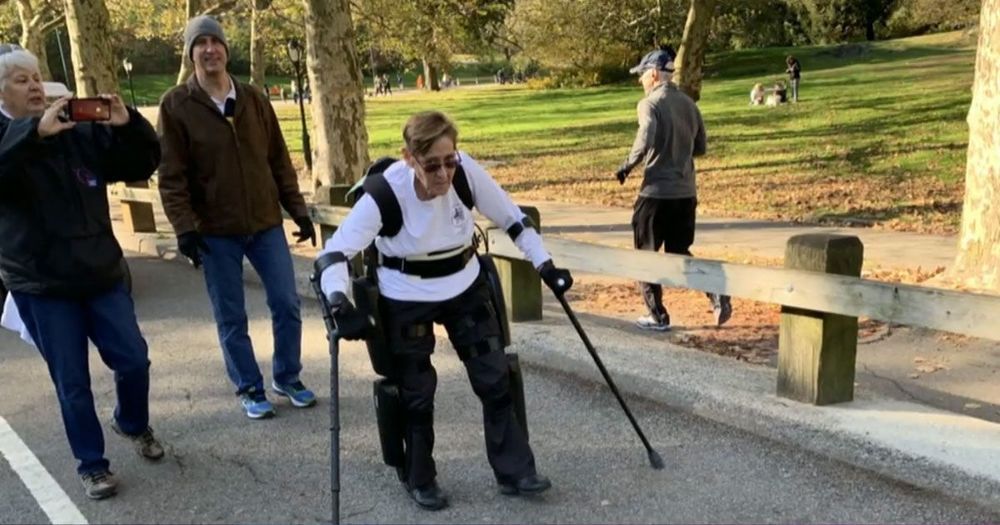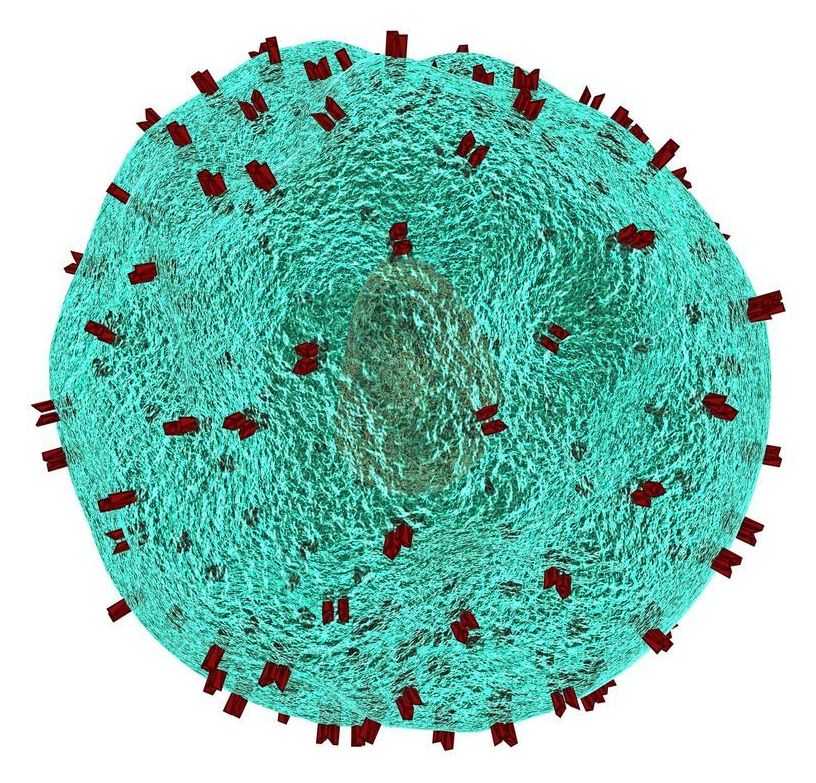Category: biotech/medical – Page 2,549


Could cytotoxic T-cells be a key to longevity?
Scientists from the RIKEN Center for Integrative Medical Science (IMS) and Keio University School of Medicine in Japan have used single-cell RNA analysis to find that supercentenarians—meaning people over the age of 110—have an excess of a type of immune cell called cytotoxic CD4 T-cells.
Supercentenarians are a unique group of people. First, they are extremely rare. For example, in Japan in 2015 there were more than 61,000 people over the age of 100, but just 146 over the age of 110. And studies have found that these individuals were relatively immune to illnesses such as infections and cancer during their whole lifetimes. This led to the idea that it might be that they have a particularly strong immune system, and the researchers set out to find out what might explain this.
To answer the question, they looked at circulating immune cells from a group of supercentenarians and younger controls. They acquired a total of 41,208 cells from seven supercentenarians (an average of 5,887 per subject) and 19,994 cells for controls (an average of 3,999 per subject) from five controls aged in their fifties to eighties. They found that while the number of B-cells was lower in the supercentenarians, the number of T-cells was approximately the same, and in particular, the number of one subset of T-cells was increased in the supercentenarians. Analyzing these cells, the authors found that the supercentenarians had a very high level of cells that are cytotoxic, meaning that they can kill other cells, sometimes amounting to 80 percent of all T-cells, compared to just 10 or 20 percent in the controls.
Can We Really Live Forever? | Unveiled
Subscribe: https://goo.gl/GmtyPv
We’ve been raised with the belief that death is inevitable, and so during our lives we consider the legacy of what each of us leaves behind. But what if you had unlimited time to pursue your life’s work, your hobbies, and your dreams.
What if you didn’t have to die? As science and medicine advances, the average human lifespan continues to increase from better care and medicines that treat diseases. Some scientists say that in the near future, perhaps within the next 50 years, immortality might be within our grasp.
To begin to understand the aging process, we have to look at the laws of physics. There are four laws of thermodynamics, and the second law of thermodynamics basically implies that everything made up of atoms rusts, falls apart and disintegrates. We are all made of atoms, and those atoms must obey the second law of thermodynamics.
Currently there are drugs based on small molecules called senolytics which are designed to eliminate these zombie cells which refuse to die. This is a good thing, because such defective senescent cells persist to emit harmful chemicals that damage other healthy cells, and cause inflammation; a process that is one of the basic mechanisms of aging. But this is only a small part of the process.


Who shrank the drug factory? Briefcase-sized labs could transform medicine
Historically, the pharmaceutical industry has relied on economies of scale, mixing hundreds of litres of reagents in massive reaction chambers to make millions of doses of a single drug. Bio-MOD and related systems, however, cycle small amounts of chemicals through a series of thumb-sized chambers that can produce hundreds or thousands of doses of multiple drugs, all in less than 24 hours. Several teams have won support for this vision from the US military: the Defense Advanced Research Projects Agency (DARPA) has handed out more than US$15 million to support these do-it-yourself drug-makers.
Engineers are miniaturizing pharmaceutical production in the hope of making it portable and inexpensive.

Artificial wombs may soon become the future — but what are the risks?
The idea of growing babies outside the body has inspired novels and movies for decades.
Now, research groups around the world are exploring the possibility of artificial gestation. For instance, one group successfully grew a lamb in an artificial womb for four weeks. Australian researchers have also experimented with artificial gestation for lambs and sharks.
And in recent weeks, researchers in The Netherlands have received €2.9 million to develop a prototype for gestating premature babies.

Research team discovers epigenetic pathway that controls social behavior in carpenter ants
Through early adulthood, exposure to new experiences—like learning to drive a car or memorizing information for an exam—triggers change in the human brain, re-wiring neural pathways to imprint memories and modify behavior. Similar to humans, the behavior of Florida carpenter ants is not set in stone—their roles, whether it is protecting the colony or foraging for food, are determined by signals from the physical and social environment early in their life. But questions remain about how long they are vulnerable to epigenetic changes and what pathways govern social behavior in ants.
Now, a team led by researchers in the Perelman School of Medicine at the University of Pennsylvania discovered that a protein called CoRest, a neural repressor that is also found in humans, plays a central role in determining the social behavior of ants. The results, published today in Molecular Cell, also revealed that worker ants called Majors, known as “brawny” soldiers that protect colonies, can be reprogrammed to perform the foraging role—generally reserved for their sisters, the Minor ants—up to five days after they emerge as an adult ant. However, the reprogramming is ineffective at the 10-day mark, revealing how narrow the window of epigenetic plasticity is in ants.
“How behavior becomes established in humans is deeply fascinating—we know it’s quite plastic especially during childhood and early adolescence—however, of course, we cannot study or manipulate this experimentally,” said the study’s senior author Shelley Berger, Ph.D., the Daniel S. Och University Professor in the departments of Cell and Developmental Biology and Biology, and director of the Penn Epigenetics Institute. “Ants, with their complex societies and behavior, and similar plasticity, provide a wonderful laboratory model to understand the underlying mechanisms and pathways.

How Gene Therapy can Help You Stop Aging, Build Muscles, and Fight Diseases
On this episode of Anti-Aging Hacks show, we get into the following topics:
1. What is Gene Therapy and how Practical is it?
2. How Gene Therapies or Gene Editing help you Stop Aging, Build Muscle and Fight Disease?
3. Could you take your body back to your much younger self?
My guest is Liz Parrish, and Liz is a humanitarian, entrepreneur, innovator, and a leading voice for genetic cures. As a strong proponent of progress and education for the advancement of regenerative medicine modalities, she serves as a motivational speaker to the public at large for the life sciences. She is actively involved in international educational media outreach and is a founding member of the International Longevity Alliance (ILA).
Here are the highlights from our conversation: